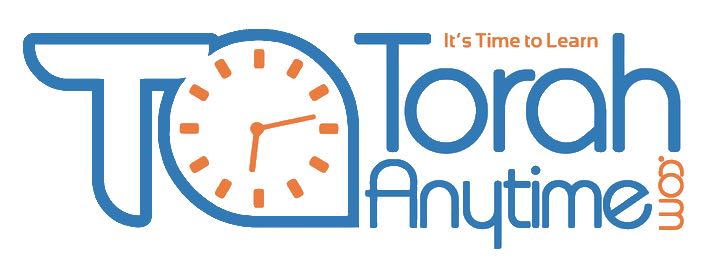Parshas VaYakhail
/Though people hate to admit it, VaYakhail and Pekudei are two of the less popular parshiyos in the Torah. We know that every letter is kadosh and deserves our complete attention in order to glean every nuance, but let’s face it. Most people suffer from Mishkanaphobia (the fear of learning anything even vaguely related to the Mishkan like Sefer VaYikra). So many people are heard to mutter to themselves “were Terumah and Titzavah so much fun, I need to learn them again!”
Conversely there are those people who look forward to VaYakhail and Pekudei. Not having been able to finish all the Rashi’s on Terumah and Titzavah, this gives them an opportunity to catch up. They are thrilled with the chazara.
However as a Parsha speaker, VaYakhail and Pekudei offer their own special challenge. How does one find an original thought while avoiding repeating what they have already said about the Mishkan and the Bigdei Kehuna? This year, of course when they aren’t even a double parsha, your choices are especially limited. There are very few new themes or Rashi’s to choose from and if you use the more popular ones, it’s hard to hold people’s attention.
There is a theme, however in Parshas VaYakhail that I believe is extremely important and like most extremely important ideas, often misunderstood. Let us set the scene. Moshe assembles Klal Yisroel and tells them that it is time to build the Mishkan. He lists what materials are necessary and describes what will be built. The people now go home to search for the materials necessary for the Mishkan, the means through which B’nei Yisroel will be able to once again have Hashem dwelling among them. An opportunity to undo the damage that was done by the building of the Golden Calf.
In פרק ל"ה פסוק כ"ב the Torah tells us ויבאו האנשים על הנשים that the men came literally “on the women” to bring various types of jewelry to offer to the Mishkan. Rashi explains this means they came “with the women”, to bring the jewelry. The Ramban, on the other hand explains it means “after the women”. Since the items being donated were women’s jewelry, women obviously had them. The women therefore took it and came. The men came after the women, so “on the women” should be understood as “joining the crowd”.
The הפלא"ה explains what is motivating Rashi. He is troubled by a practical halachic problem. The jewelry that a man gives his wife essentially belongs to the husband. The wife however, has it in her possession, Therefore the husband couldn’t sell the jewelry without his wife’s permission and she can’t sell it without her husband’s permission. Therefore both the husband and wife would have to be present in order for the treasurer to accept the jewelry. The wife would have to want to give it and the husband would have to give his consent. Consequently Rashi explains that “the men came on the women “ as dependent on them. They were both needed for the donation to be accepted.
This could also fit into the Ramban, he says. The women would have come first but been unable to donate their jewelry without their husband’s permission. So “on the women” would be understood as joining them in order to complete the transaction.
All of this is fine and good, except for the Daas Zekanim. They offer up a most unusual pshat, which is also in the B’chor Shor and the Chizkuni – it’s literal! “The men came on the women”, to take their jewlerlly by force! It sounds like they grabbed the jewlerry and ran! But we know from the הפלא"ה that that’s impossible! The treasurer would never accept the jewlerly from the husbands without the wife’s consent.
The Daas Zekanim continues
אעפ"כ הנשים שמחות וזהירות במלאכת שמים , “none the less the women were happy and careful with the work of Heaven”. This is a strange thing to say. I could imagine that after having had their jewelry forcibly removed they might have been happy anyway (at least it’s going to a good cause) but careful? What were they careful about? If they were careful, they would still have their jewelry!
The next line is equally puzzling. “And as a reward they merited not to do melacha on Rosh Chodesh. Because by the building of the Golden Calf the men took their jewelry against their will, but here they were happy to give it”. Once again, what choice did they have except to be happy? It was ripped off of them! I understand if they had donated the jewelry they deserved special mention, but here they just went along with a fait accompli.
And what in the world does this have to do with women not working on Rosh Chodesh? Is that supposed to pay them back over time for their lost jewelry? What is the midah knegged midah involved?
I think the key to understanding what the Daas Zekanim is trying to tell us is to understan the word זהירות. What does it mean? We’ve translated it as thinking, I’ve seen it translated as watchfulness. The Mesillas Yesharim in ג'&פרקים ב' translates the concept represented by the word זהירות. The Ramchal explains it as thinking. Weighing carefully every action we do to see if it is good or bad. If the action is good, we should then see if it was done in the best possible way. Was there perhaps a bad midda associated with the good deed that should be removed? Can I make the good that I do better?
The Mishkan was on one level, an atonement for the Golden Calf. As such, those who donated to the Golden Calf had to donate likewise to the Mishkan in order to receive their atonement. Others who wanted to donate could do so as well, but the people who were responsible for the Aigel had to and with the same enthusiasm. When Moshe gave the call to donate to the Mishkan, the women were thrilled to be able to donate their jewelry to such a noble cause. But they were zehiros, thinking and carefully examining the situation. Of course we could stand up with pride and donate to the Mishkan. And our husbands will happily go along. But is that the best thing we can do? What about our husbands? They sinned by enthusiastically ripping off our jewlery for the Aigel. If they don’t do that for the Mishkan, then maybe they will never have a full atonement.
So together husband and wife went to the treasurer. The wife expressed her desire that her jewelry be given and then the men, mimicking the excitement that they had displayed for an impure purpose, ripped off their wives jewelry to give to the making of the Mishkan. The women were zehiros – and happy. Because although they would have much preferred to stand up and give their jewelry themselves, they were happy that they gave up their own honor for a much nobler cause – their husbands opportunity for a full atonement.
And in reward they receive a deeper appreciation of Rosh Chodesh. What is Rosh Chodesh? As Rashi explains in Parshas Pinchas, that after the moon complained that two kings could not rule with one crown, he was made smaller. The moon complained – because I pointed out a problem, I get punished! It doesn’t pay to be helpful. Hashem consoled him by, among other thing, giving the Jews a lunar calendar for our months. The holiday of Rosh Chodesh recognizes that the moon, which suffered embarassment for a good cause, would be compensated. What more appropriate gift could there be for women who were willing to forego their own honor for a higher purpose?
Today there are those who take this Daas Zekanim and trumpet Rosh Chodesh as a womens holiday – an opportunity to express their perceived lack of fulfillment as Orthodox women. How sad that they miss the real message – that the key to greatness is looking for the good of Klal Yisroel, the many womwn who sacrafice so that their husbands should be able to learn in kollel or be kovea itttim l’Torah, at the expense of their own aggrandisement.
משנכנת אדר מרבים בשמחה When Adar arrives, we add to our happiness. As Adar Sheni approaches let’s look at the new moon – that tiny sliver in the sky and remember that B’nei Yisroel is compared to the moon. Small and apparently insignificant compared to the blazing glory of the sun of the nations of the world. But we know that no matter how small we get, we always return and when Moshiach finally arrives, the moon will be restored to it’s ancient glory.
Good Shabbos









Sponsored by Anonymous
May you and your family be blessed and may Hashem grant you health, happiness, Nachas and the strength to keep encouraging all of us.